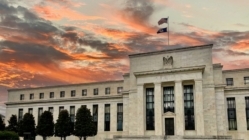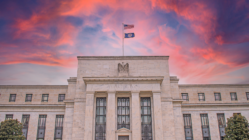Chinese Yuan Is Tanking!
I wrote a couple of blogs a few weeks ago about how precarious China’s economy is, making a very strong case for a crash: China’s Collapse Is Here And It Will Be Brutal and China’s Demise Part II.
I had no idea how long it would take to play out, but in the 2nd blog, I said to watch China’s currency for signs of problems. This is because China is desperately trying to keep its currency (the Yuan) as strong as possible for reasons I set out in the blogs (when currencies get too weak, it causes enormous problems for the country).
I mentioned that China has been trying to keep the currency stronger than 7.30 Yuan to the dollar as sort of a benchmark or a way to show the world that they remain in control, but the currency slid to 7.33 to the dollar (the higher the number, the weaker the currency) yesterday – despite many “interventions” or efforts by the Chinese to prop up the Yuan. In any case, this is an indication that things may be unraveling in China sooner than many people expected.
Goldman Went “Full Retard”
That is NOT my expression in the subheading, to be very clear; it was the description George Gammon used in this somewhat clumsy video: Goldman Releases Shocking Prediction About Recession. (As an FYI, Gammon’s impolitic phrase is a takeoff from a very famous scene in the movie Tropic Thunder).
I loved the topic and the video because I am so deeply embedded in the recession camp now that I too was shocked when I saw Goldman’s prediction in the news recently: Goldman Sachs cuts US recession odds to 15% as economic optimism grows. I also suspect many blog readers saw the news as well, so I wanted to touch on this in my blog quickly.
Goldman cites the usual reasons for their prediction, sounding much like the Fed: inflation is taming; labor markets are strong; incomes are rising; and the “lag effects” from the rate increases will soon be fully absorbed.
But my thought was, why would a highly sophisticated Goldman Sachs analyst ignore all of the signs that scream recession?
Gammon shreds all of Goldman’s assertions in his video, reminding us that Goldman completely missed the 2008 financial crisis with its previous predictions, as well as the inflation runup we just went through and much of the fallout from the COVID crisis.
One of the signs that Goldman is ignoring is the inverted yield curves that almost always predict recessions, as I explain here: When will the recession come? Goldman is also ignoring: (1) major problems overseas that will spill over to the U.S., per Jeff Snider; (2) quickly tightening bank lending/credit standards that also predict recessions with surprising accuracy; (3) the impact of tight monetary policy and the lag effects from higher rates that have NOT been felt yet, as many companies, investors and consumers are only now being forced to refinance into higher rates; (4) rising credit card delinquencies; (4) plummeting savings levels; (5) the impact of government stimulus drying up; (6) the impact of student loan payments resuming; and (7) a pending commercial real estate crisis – due to high interest rates and very high vacancy rates.
Here is a recent Wealthion video in which a chief investment advisor for Oxbow Advisors sets out much of this: Recession By Q4? And 6% Unemployment Next Year?
So Why Would Goldman Make This Prediction?
Gammon thinks there are several reasons why: (1) Goldman Sachs as an entity wants to continue to sell securities to unsuspecting buyers; (2) Goldman’s analysts are forced to make such predictions in order to keep their jobs; (3) Goldman’s analysts suffer severely from “recency bias,” focusing on and extrapolating from recent trends only; employment has been strong recently, for example, so it will remain strong.
It may also be political, as Goldman is heavily tied in with the powers that be in Washington, so they may not want to rock that boat as well with too much negativity.
What Will Goldman Say When The Recession Hits?
Gammon reminds us that Goldman is wrong all the time. And every time they are wrong, they claim it was some unforeseen circumstance that caused them to be wrong.
Such circumstances could be things like the unforeseen extent of subprime loan problems, the COVID crisis, the Ukraine war, or problems in China. In other words, they use the same technique that our politicians and the Fed use.
Sign up to receive our blog daily
























